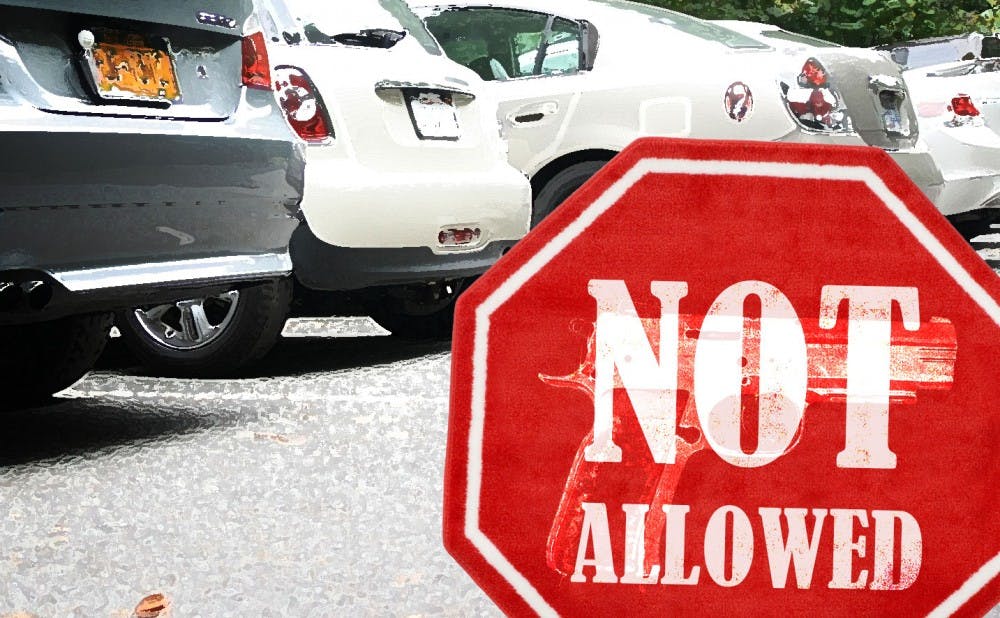As of today, licensed gun owners who are in public college in North Carolina are allowed to conceal their handguns in locked vehicles.
This legislation—passed as a provision of House Bill 937 in July by Governor Pat McCrory—applies explicitly to public universities and colleges in North Carolina. Duke University officials responded by issuing a statement several days ago prohibiting guns on campus whatsoever, an avenue granted by the new bill for private institutions.
“Duke has had a very long history of not permitting weapons on campus,” said Vice President of Administration Kyle Cavanaugh. “For us, the campus remains in exactly the same form in terms of gun-carrying policies. There’s no change in the way we’ve been handling this for the many past decades.”
Although private institutions are not mandated to comply with the law, they have to make their policies explicitly clear. Cavanaugh explained that Duke will put up signs in critical locations reminding students that firearms are banned on campus.
“The signs are simply going to say that weapons are prohibited from Duke properties,” Cavanaugh said.
Duke serves as an exception to the law because it is a private post-secondary education institution, but public schools like the University of North Carolina at Chapel Hill must comply.
“The policy here is to follow the law — private institutions like Duke do have the power to prohibit weapons on campus, but UNC’s policy is abiding by and enforcing the law,” said Jeff McCracken, chief of police and director of public safety at UNC.
The law presents a novel situation for UNC, McCracken added.
“Previously, handguns were prohibited from school ground, period," McCracken said. "The change is allowing handgun permit holders to bring firearms onto campuses as long as the guns are locked in a vehicle. This new legislation also only addresses handguns, not long guns of any type.”
Although McCracken said that it is too early to tell what the consequences may be, he expressed concerns that the new law could potentially result in tragedies such as suicides and accidental discharges of the weapons which could have been avoided otherwise.
McCracken added that although handguns are not legally permitted to be taken out of the vehicle, students might be tempted to take action on their own to address dangerous situations on campus and put their and others’ safety in jeopardy.
“if we were to have an active campus shooter, the students might be tempted to help out in a situation like that,” McCracken said. “My officers are trained to respond to the sound of gun fires. However, when they come to a situation where the campus shooter is not the only one with weapons, unnecessary chaos would be created.”
Before the passage of the law, the 17 police chiefs of the UNC system's different campuses signed a joint statement in June opposing the bill. According to the statement, the chiefs believe that “passage of this bill would increase the risk to the safety of our students, faculty, staff and visitors."
The efforts to protest the bill, however, were unsuccessful.
A number of Duke students have voiced support in response to the University's stance on the law.
First-year Sarah Hakani said that she feels a lot safer being on Duke's campus where no guns are allowed regardless of where they are stored.
“I would be less comfortable with people around me having guns in their cars that I don’t know about,” Hakani said.
Get The Chronicle straight to your inbox
Signup for our weekly newsletter. Cancel at any time.

